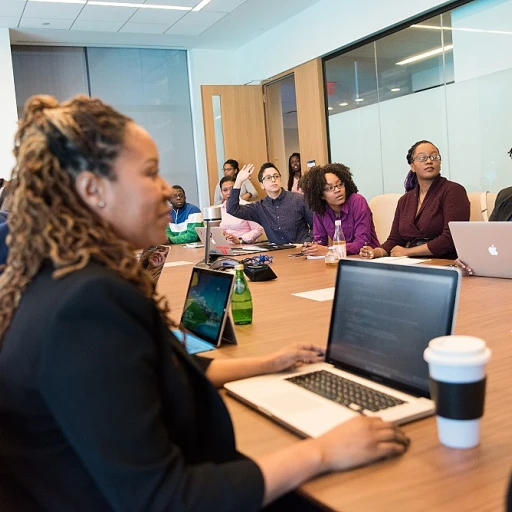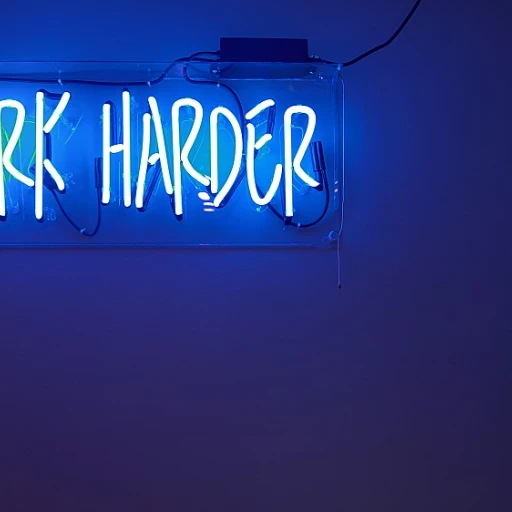
Understanding the Role of Succession Planning
Recognizing the Importance of Preparing for Future Leadership
In any organization, understanding the role of succession planning is pivotal for long-term success. It is the strategic approach taken by a company to ensure that when key roles become vacant, either through retirement, promotions, or unforeseen circumstances, there are qualified individuals ready to step in. This process is not merely about replacing retiring executives; it's about identifying leader candidates who can drive the organization towards its future goals. Effective succession planning begins with a thorough understanding of the company's current and future organizational goals. These objectives shape the criteria for selecting the next generation of leaders. By aligning succession planning with strategic plans, a company can cultivate a leadership pipeline, prepare candidates for higher responsibilities, and ensure a seamless transition when key positions need to be filled. This approach necessitates a deep dive into assessing the skills, abilities, and potential of current team members. Hiring managers and executives play a crucial role in this process. They must ask the right questions during the executive interview to gauge candidates' leadership style and decision-making abilities. An effective interview question strategy is crucial to determine who possesses the strategic thinking and problem-solving skills necessary for success in a leadership role. Furthermore, fostering a culture of continuous development within the organization is essential. By providing opportunities for growth, the company helps candidates develop the leadership potential that aligns with the organization's long-term vision. Additionally, executives and hiring managers must continuously evaluate leadership traits and ensure that these align with the job and organizational culture. To delve deeper into crafting effective interview questions for applicants that align with succession planning, you can explore further here.Key Attributes to Look for in Executive Candidates
Identifying Core Competencies
When considering executive candidates, it is crucial to identify the core competencies that align with your organization's strategic goals. These competencies often include leadership skills, strategic thinking, and decision-making abilities. A candidate's ability to demonstrate these skills during the interview process can provide valuable insights into their potential fit for the role.
Evaluating Leadership Style
Understanding a candidate's leadership style is essential for determining how they will integrate with your existing team and foster a positive work environment. During the executive interview, hiring managers should ask questions that assess the candidate's approach to leadership and their ability to inspire and motivate team members. For example, asking them to describe a time they successfully led a team through a challenging project can reveal their leadership style and problem-solving skills.
Assessing Strategic Thinking
Strategic thinking is a critical attribute for any executive role. Interview questions should be designed to evaluate a candidate's long-term vision and their ability to align with the company's goals. A question that assesses this might be, "Can you describe a strategic decision you made that had a significant impact on your previous organization?" This question not only gauges their strategic thinking but also their ability to articulate and execute a vision.
Understanding Risk Management
Risk management is another key attribute to look for in executive candidates. The ability to identify, assess, and mitigate risks is crucial for maintaining the stability and growth of the organization. During the interview, questions that explore the candidate's experience with risk management can provide insights into their decision-making process and their ability to handle unforeseen challenges.
By focusing on these key attributes, hiring managers can better assess a candidate's potential to succeed in an executive role, ensuring that the interview process aligns with the organization's long-term objectives and fosters a culture of effective leadership.
Formulating Strategic Interview Questions
Designing Questions to Uncover Strategic Insight
Formulating questions for an executive interview demands a thoughtful approach. This process assists in evaluating the candidate’s strategic thinking, leadership style, and decision-making skills, which are pivotal for the success of the organization. When crafting interview questions, it's essential to ascertain how the candidate's skills align with the company’s long-term goals. Here are some strategies to consider:- Prioritize Problem-Solving Ability: Ask the candidate to describe a time when they leveraged their problem-solving skills to overcome significant challenges. This question assesses their ability to handle complex situations and think strategically.
- Evaluate Risk Management Skills: Inquire about how they have previously managed risks within a team or company. This helps you understand their decision-making capabilities and willingness to embrace calculated risks.
- Leadership Potential and Styles: Focus on questions that reveal the candidate’s leadership style. For example, you might ask how they foster a culture of excellence within their team. Knowing how they influence and inspire team members is crucial.
- Long-Term Vision: Assess their vision for the organization in relation to their role. Questions exploring how they plan to contribute to the company's growth can indicate their alignment with organizational goals.
- Collaborative Approach: Understanding how they work with others is vital. Prompt them to share experiences about leading teams through challenging projects and how they ensure alignment with organizational objectives.
Evaluating Leadership Potential
Assessing Leadership Potential in Executive Interviews
When it comes to evaluating leadership potential during an executive interview, hiring managers must delve deeper than just the resume. The ability to lead effectively is not just about past achievements; it's about envisioning how a candidate will fit into the company’s long-term goals and culture. Here are some strategies to consider:
- Strategic Thinking: Ask questions that assess the candidate's ability to think strategically. For example, "Can you describe a time when you had to make a strategic decision that impacted the entire organization?" This question assesses their decision-making skills and ability to align with organizational goals.
- Problem Solving: Evaluate how candidates approach complex problems. A question like, "Describe a situation where you had to solve a significant problem with limited resources," can reveal their problem-solving skills and adaptability.
- Leadership Style: Understanding a candidate's leadership style is crucial. Ask, "How would you describe your leadership style, and how do you adapt it to different team members?" This helps in assessing how they might foster a positive work environment and culture.
- Risk Management: Leadership often involves taking calculated risks. Inquire about their approach to risk with questions like, "Can you provide an example of a risk you took that didn’t go as planned, and what you learned from it?" This reveals their ability to learn and grow from challenges.
By incorporating these types of questions into the interview process, hiring managers can gain valuable insights into a candidate's leadership potential. This approach not only helps in selecting the right executive but also ensures that the individual aligns with the company’s strategic vision and goals.
Incorporating Behavioral and Situational Questions
Incorporating Behavioral and Situational Queries
To truly understand a candidate's potential for a leadership role within your company, integrating behavioral and situational inquiries into your executive interview process is crucial. These types of questions are designed to prompt candidates to discuss real-life experiences and hypothetical scenarios, allowing the hiring manager to assess various skills, abilities, and approaches. Behavioral questions delve into how a candidate has handled past situations, providing insight into their decision-making skills and leadership style. For example, asking a candidate to 'describe a time when they had to overcome a significant challenge within their team' can reveal their problem-solving abilities and resilience. The answer approach to such a question can also indicate how the candidate facilitates teamwork and fosters a positive work environment. On the other hand, situational questions are strategic in assessing how candidates would react in scenarios they might face in the role. For instance, posing a question like, 'How would you approach a scenario where your team is divided on a strategic company decision?' asks the candidate to demonstrate their strategic thinking and risk management capabilities. Both types of questions are tailored to align with your organization's goals and give hiring managers a clear picture of how the candidate will interact with their team members, adapt to the company culture, and contribute to long-term success. This blend of questioning strategies can significantly bolster the interview process, providing a comprehensive view of a candidate's fit for the executive position and their potential for future development within the organization.Aligning Interview Questions with Organizational Goals
Customizing Executive Interview Questions to Organizational Goals
When planning for a high-stakes executive interview, aligning your questions with the organization's objectives is crucial. This strategic approach ensures that the discussion revolves around elements that are vital for the company's success and growth. For starters, hiring managers should have a clear understanding of the organization's long-term goals and the role the executive candidate will play in reaching them. Asking about their problem-solving skills and strategic thinking is essential. This not only assesses their readiness but also determines if their leadership style complements the company's vision. One way to tailor the questions is by focusing on how the candidate's previous experiences align with the organization's mission. For example:- "Describe a time when you had to make a strategic decision that impacted the company’s long-term goals. What were the outcomes, and how did you evaluate success?"
- "How have you fostered a culture of collaboration and innovation in previous teams?"













